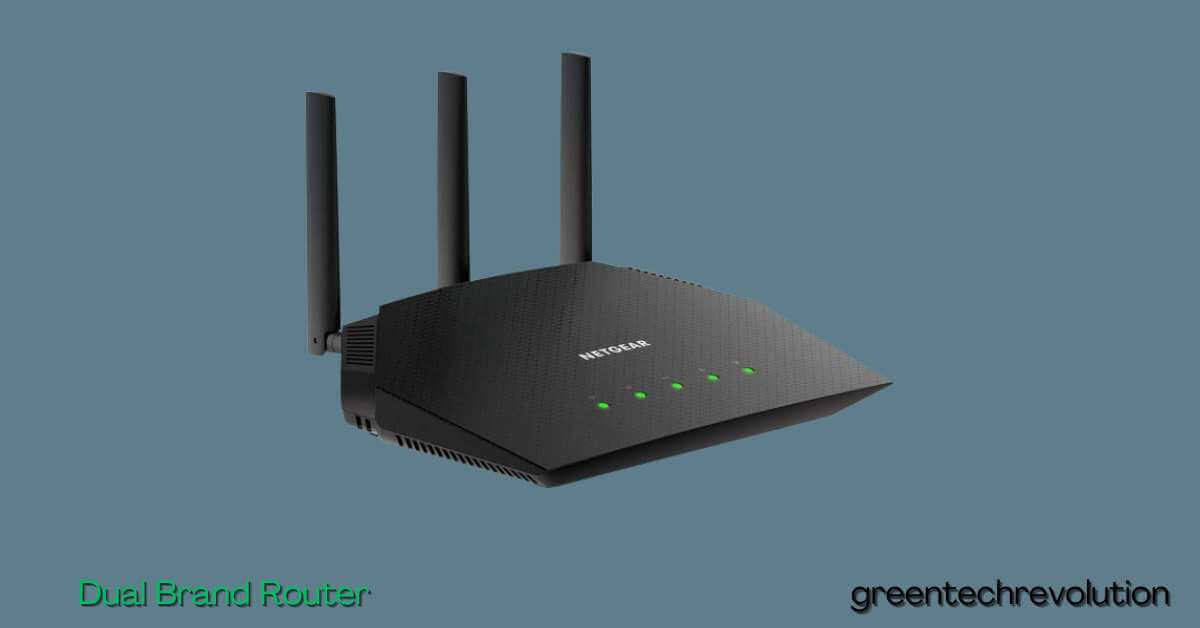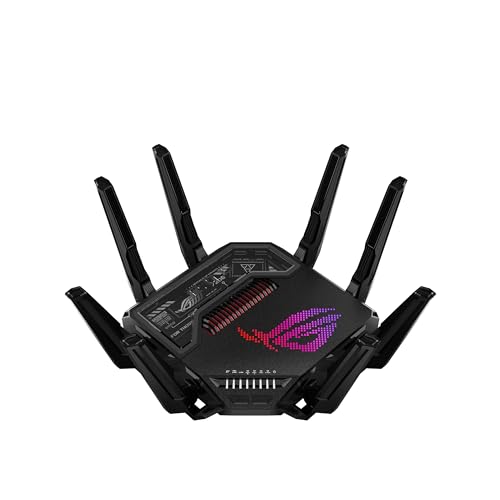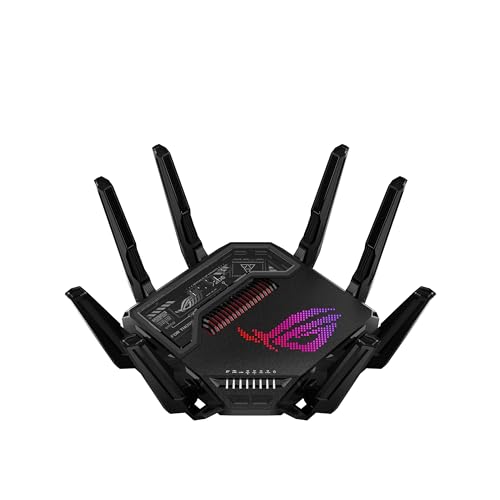A dual-band wi-fi router is a type of router that supports both the 2. 4GHz and 5GHz frequencies.
It allows devices to connect to either band, providing flexibility and higher overall performance for wireless networks. With the rise of smart homes and the increasing number of wireless devices in households, a robust and reliable wireless network is more important than ever. And that’s where a dual-band wi-fi router comes in handy. By supporting two frequencies, it can distribute the load between the two bands, reducing congestion and improving overall performance. Plus, it offers more flexibility for connecting devices that may not support one frequency or the other. In this article, we’ll delve deeper into what dual-band wi-fi routers are, how they work, and the benefits they offer for home and business networks.
Introduction
Wireless internet has revolutionized the way we connect to the world. With the rise of smart homes, mobile devices, and smart tvs, the demand for reliable wi-fi connections has skyrocketed. But with so many devices and interference from other signals, traditional wi-fi routers face challenges in providing uninterrupted speeds.
This is where dual-band wi-fi routers come in to save the day.
Explanation Of What A Dual-Band Wi-Fi Router Is
A dual-band wi-fi router, as the name suggests, has two separate bands for wireless communication. These bands are the 2. 4ghz and 5ghz frequency bands. This means that the router can deliver both standard wi-fi signals and high-speed signals simultaneously.
The 2. 4ghz band offers better coverage as it has a slower speed, while the 5ghz band provides faster speeds but has a shorter range.
Importance Of A Dual-Band Wi-Fi Router
Dual-band wi-fi routers are crucial in environments where multiple devices are accessing the wi-fi router simultaneously.
- High-speed connectivity: the dual-band feature allows devices with compatible wi-fi adapters to connect to the 5ghz band, which provides faster speeds and smoother streaming.
- Reduced interference: the 2. 4ghz band is prone to interference from other devices like microwaves and bluetooth devices. With dual-band routers, devices can connect to the 5ghz band, reducing congestion and interference.
- Enhanced coverage: the 2. 4ghz band offers better coverage than the 5ghz band, making dual-band routers ideal for larger homes.
- Flexibility: a dual-band router allows network administrators to assign devices to different bands, optimizing the bandwidth usage and preventing the devices from interfering with each other.
A dual-band wi-fi router is an excellent option that provides both fast speeds and reliable coverage for all your devices. Whether you have a big family or just a few devices, a dual-band router ensures that you have a consistent and robust wi-fi connection.
Understanding Dual-Band Wi-Fi Technology
Wireless internet access has become an essential component in our lives. The backbone of any wi-fi network is the router, which communicates with various devices such as smartphones, laptops, and smart tv’s. The dual-band wi-fi router is becoming increasingly prevalent thanks to its improved connectivity and faster speeds.
In this blog post, we will discuss the critical aspects of dual-band wi-fi technology in detail. Our primary focus will be on the advantages of such devices over single-band routers. So let’s dive in!
Definition Of Dual-Band Wi-Fi Technology
A dual-band wi-fi router uses two frequency bands to transmit data between connected devices and the router. The data is transmitted by radio waves, and the router divides its signal between the two bands, 2. 4 ghz and 5 ghz.
Each frequency band has various advantages and disadvantages, but a dual-band wi-fi combines both bands to provide higher performance and faster speeds.
Explanation Of The Differences Between Single-Band And Dual-Band Routers
The primary advantage of dual-band routers over single-band devices is their ability to offer faster and more reliable output. Single-band wi-fi devices only operate on one frequency band, which means that they face a lot of interference from other devices that transmit on the same frequency band.
- Dual-band routers allow more devices on the wi-fi network. In contrast, single-band routers can only support few, which creates a strain on the network and reduces stability.
- Dual-band routers reduce interference since they support two frequency bands, providing you with better connectivity and faster speeds.
- Dual-band routers can deliver better coverage since the two frequencies can reach different areas. In contrast, single-band devices tend to have limitations since there is only one frequency available.
- 5ghz is usually less congested than the 2. 4ghz, resulting in faster connections and low latency for bandwidth-intensive applications such as gaming, streaming, and video conferencing.
Dual-band wi-fi routers have become a critical addition in many households, offering improved speeds, reliability, and coverage. If you’re looking for a wi-fi router that can support multiple devices and delivers better output than a single band device, a dual-band wi-fi router is a perfect choice.
Benefits Of Dual-Band Wi-Fi Routers
If you’ve been using the internet for some time, you’ve probably heard about dual-band wi-fi routers. But what exactly are they? And what benefits do they offer? In this article, we’ll dive deeper into what a dual-band wi-fi router is and the benefits you can expect by using one.
Faster Internet Speed Due To Less Network Congestion
One of the most significant benefits of a dual-band wi-fi router is faster internet speeds due to less network congestion. Dual-band routers work on two frequency bands, 2. 4 ghz, and 5 ghz. The 2. 4 ghz band is more prevalent and is often used by most of the household appliances that require internet connectivity.
This can cause congestion and slow down your internet speed. However, using a dual-band router means that you can switch to the 5 ghz band, which offers faster speeds and less interference from other devices.
Using dual-band routers also means that you’ll get a better internet experience, especially when streaming videos, gaming, or working from home.
Better Wi-Fi Coverage And Signal Strength
Another significant advantage of using a dual-band wi-fi router is better wi-fi coverage and signal strength. The 5 ghz band has a shorter wavelength, meaning that it can penetrate through walls and objects more easily than the 2. 4 ghz band.
This translates to better coverage throughout your home or office and a stronger signal wherever you are.
Moreover, using a dual-band wi-fi router means that you can create multiple networks, each with its unique configuration and password, allowing you to tailor your network to specific devices or requirements.
Ability To Connect Multiple Devices Without Compromising Performance
Using the 2. 4 ghz band means that you can connect multiple devices to your network without any performance issues. However, this can cause congestion and slow down the speed and performance of your network. Using a dual-band wi-fi router, you can connect multiple devices to separate bands, thereby reducing network congestion and improving network performance.
This means that you can connect all your smart devices, laptops, smartphones, and gaming consoles to your network without any speed or performance issues.
Increased Security And Fewer Interference Issues
Using a dual-band wi-fi router offers increased security and fewer interference issues. The 5 ghz band is less crowded than the 2. 4 ghz band, which means that there’s less interference from other devices and networks. This also makes it harder for outsiders to hack into your network.
Moreover, dual-band routers often come with advanced security features like firewalls, parental controls, and guest network access, ensuring that your network is secure and safe to use.
Dual-band wi-fi routers offer significant benefits, including faster internet speed, better wi-fi coverage, the ability to connect multiple devices without compromising performance, and increased security. By using a dual-band router, you can enhance your internet experience and enjoy uninterrupted and fast internet connectivity.
How Dual-Band Wi-Fi Routers Work
Wireless devices are an indispensable part of our daily life, and wi-fi routers play the most significant role in providing internet connectivity to all these devices. In recent times, the trend for dual-band wi-fi routers has increased significantly due to the merits they offer.
Dual-band routers come with two separate frequency bands, i. E. , 2. 4 ghz and 5 ghz, which enable them to provide faster speeds, more capacity, and greater connectivity. In this blog post, let’s take a closer look at how dual-band wi-fi routers work.
Explanation Of How Two Separate Networks Function On Dual-Band Routers
Dual-band routers operate on two separate frequencies, and the 2. 4 ghz band is typically used by older devices, whereas the newer ones utilize the 5 ghz band for communication.
- Dual-band routers come with two different wireless networks, one at 2. 4 ghz and the other at 5 ghz frequency, operating simultaneously.
- These two separate networks function independently, and a device can only connect to either one of them at any given time.
- The 2. 4 ghz frequency band has a larger range and can penetrate through thick walls, while the 5 ghz frequency band provides faster data transfer speeds but has a shorter range.
Overview Of Beamforming And MIMO Technology Used In Dual-Band Routers
Dual-band wi-fi routers use beamforming and mimo (multiple input multiple output) technology to improve the wireless connectivity experience.
- Beamforming improves the signal strength and range by allowing the router to focus the wi-fi signal in specific directions where the device is located.
- Mimo enables dual-band routers to communicate with multiple devices simultaneously by using multiple antennas.
- Mimo improves the signal strength and quality while minimizing interference from other electronic devices in the surroundings.
- Mimo enables dual-band routers to provide faster connectivity, especially in congested areas with multiple devices connected to the same network.
Dual-band wi-fi routers provide faster speeds and greater capacity by employing two separate frequencies. By using beamforming and mimo technology, these routers ensure better connectivity, signal strength, and faster data transfer rates. Dual-band routers are ideal for homes and small businesses where multiple devices require internet connectivity.
Choosing The Right Dual-Band Wi-Fi Router
Dual-band wi-fi routers have become increasingly popular among internet users over the past decade. They offer the flexibility to connect multiple devices at high speeds, making them popular for both home and business use. Choosing the right dual-band wi-fi router can be difficult, with a wide range of brands and models available in the market.
In this section, we will explore the important factors to consider before purchasing a dual-band wi-fi router and compare popular models available in the market.
Factors To Consider When Purchasing A Dual-Band Wi-Fi Router
When looking to purchase a dual-band wi-fi router, there are several important factors to consider.
- speed: ensure that the router is capable of providing high-speed internet to all your devices. Check the router’s maximum internet speed and bandwidth, which determines the maximum number of devices that can be connected simultaneously.
- coverage: choose a router that offers wide coverage, to avoid dead zones and ensure that all your devices can connect without any signal loss or interruption. Consider the size and layout of your house or office, as well as any potential obstructions that may affect the signal strength.
- security: look for routers that offer advanced security features such as wpa3 encryption, vpn support, and malware protection to keep your network and devices secure from online threats.
- brand and customer support: choose a reputable brand with good reviews and a reliable customer support system. This ensures that any issues or concerns can be resolved promptly without causing any inconvenience or downtime.
Comparison Of Popular Dual-Band Routers In The Market
With a wide range of dual-band routers available in the market, here are some of the most popular models with their key features:
- asus rt-ax88u: this router boasts the latest wi-fi 6 technology, providing high speed and low latency for multiple devices. It includes eight gigabit lan ports, 1. 8ghz quad-core processor, and aiprotection pro for advanced security.
- tp-link archer ax6000: this router also uses wi-fi 6 technology and features 8 gigabit lan ports, 1. 8ghz quad-core processor, and parental controls for safe browsing.
- netgear nighthawk x10 ad7200: this router combines wi-fi ad and wi-fi ac, providing high speed and coverage. It features 6 gigabit ethernet ports, 1. 7ghz quad-core processor, and advanced features such as dynamic quality of service for prioritizing internet traffic.
- linksys ea9500 max-stream ac5400: this router also uses wi-fi ac technology and features 8 gigabit ethernet ports, 1. 4ghz dual-core processor, and advanced beamforming technology for improved signal strength and range.
Purchasing a dual-band wi-fi router is an investment that requires careful consideration to avoid future inconveniences or disappointments. With the right considerations in mind, one can easily find a router that meets their internet needs.
Recap Of The Benefits Of Dual-Band Wi-Fi Routers
Dual-band wi-fi routers use two separate bands to transmit data from one device to another. Typically, they use the 2. 4ghz and 5ghz frequency bands, providing greater coverage and speed.
- Reduced interference: with two separate frequency bands, dual-band wi-fi routers can reduce interference, which is common with single-band routers. This means that you can enjoy better connectivity and faster speeds, even if you have multiple devices connected to your network.
- Better coverage: dual-band wi-fi routers offer better coverage than single-band routers, meaning you can receive a strong signal from farther away. This makes them ideal for larger homes and offices.
- Faster speeds: dual-band wi-fi routers offer faster speeds, thanks to the fact that they operate on two different bands. This is especially useful for those who require high-speed internet for data-intensive activities such as streaming, online gaming, and video conferencing.
Final Thoughts On The Importance Of Upgrading To A Dual-Band Wi-Fi Router
It is clear that there are many benefits to upgrading to a dual-band wi-fi router. With faster speeds, better coverage, and reduced interference, you can enjoy a more dependable internet connection, even if you have multiple devices connected to your network.
While it may require a bit of an investment, it is a worthwhile one that is sure to pay off in the long run. So, if you’re experiencing a slow and unreliable wi-fi connection, upgrading to a dual-band wi-fi router is definitely worth considering.
Frequently Asked Questions Of What Is A Dual-Band Wi-Fi Router
Final Verdict
After exploring the ins and outs of dual-band wi-fi routers, we have come to the conclusion that they are an essential piece of equipment for anyone looking to improve their wi-fi network performance. Its ability to operate on two different frequencies simultaneously allows for better speeds, reduced congestion, and a more stable connection.
While it may cost a bit more than a standard single-band router, the benefits are definitely worth it in terms of improved internet experience and productivity. Remember to take into consideration the size of your home and number of devices that will be utilizing the network when selecting a dual-band router.
Overall, we highly recommend upgrading to a dual-band wi-fi router for anyone who wants to enhance their internet experience, whether it’s for work or play.






Leave a Reply
You must be logged in to post a comment.